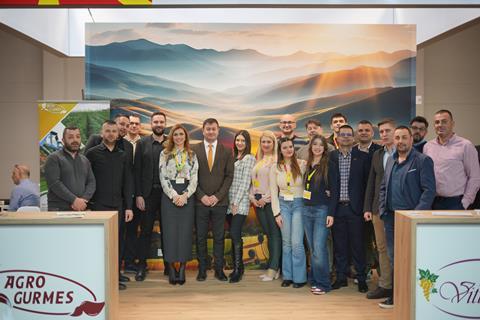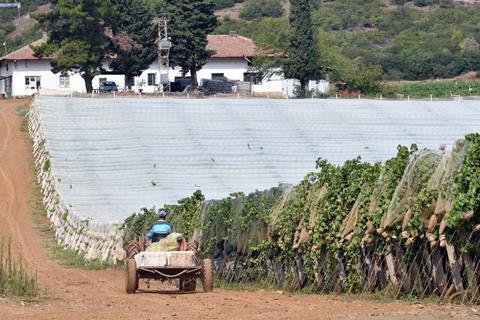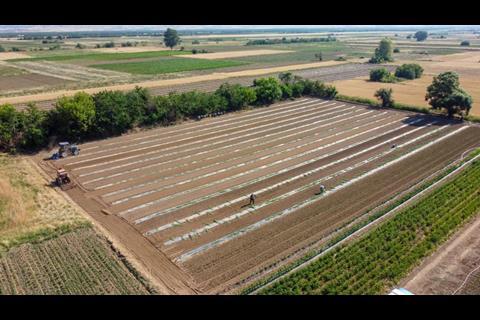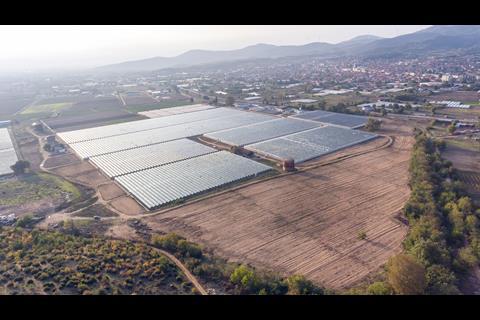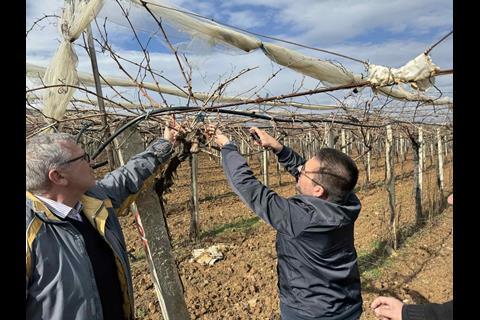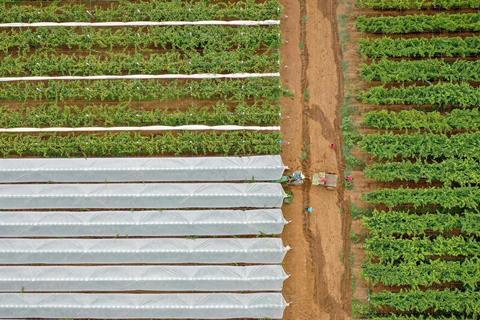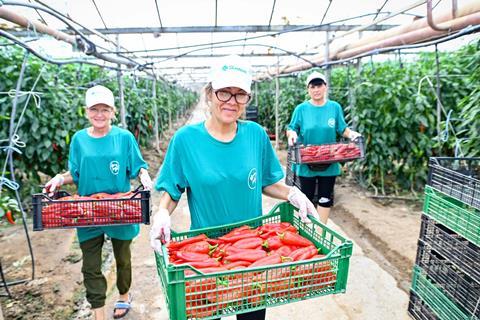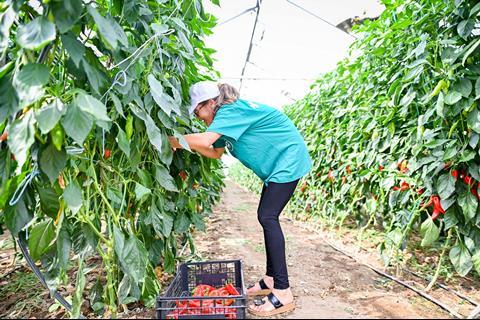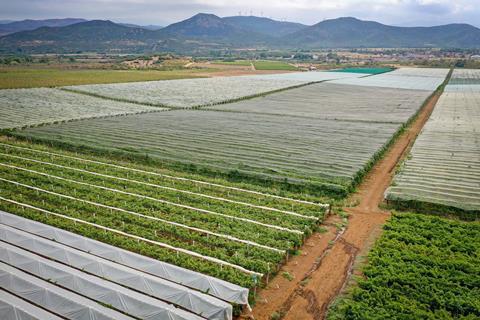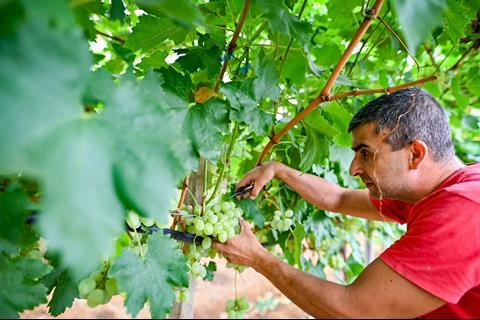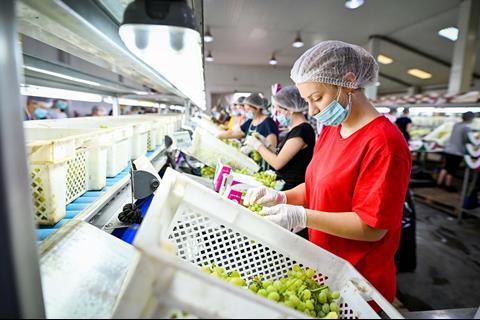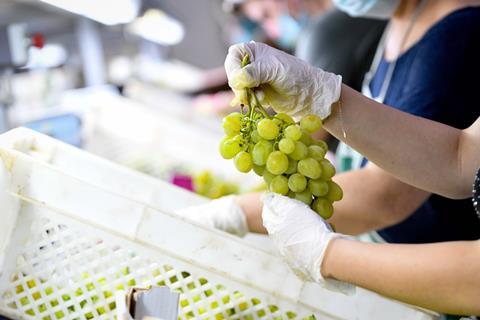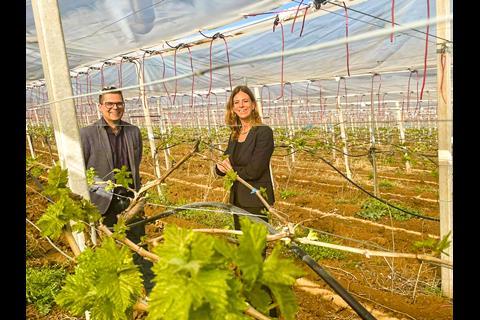Makfresh unites North Macedonia’s leading fresh produce exporters, with the goal of boosting the visibility of the country’s fruit and vegetables and expanding access to European markets
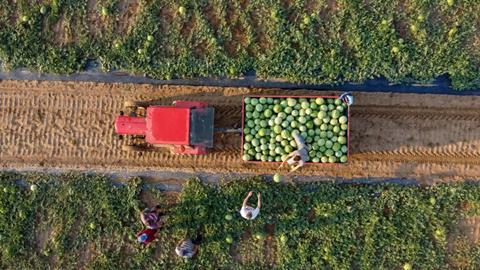
In response to growing demand for high-quality, traceable fresh produce across Europe, North Macedonia’s leading fruit and vegetable producers have joined forces under a new industry association, Makfresh.
Established in 2023 by six export-oriented companies, Makfresh was created to improve coordination, raise production and quality standards, and strengthen the country’s position in international markets.
The association has since doubled in size, now comprising 12 members that represent a broad range of products — from table grapes, apples and persimmons to cabbage, tomatoes and carrots.
Within its first year, Makfresh earned formal recognition as a socio-economic partner of the Ministry of Agriculture, Forestry, and Water Economy, becoming the first association from the fresh produce sector to hold this status.
Its members are already active in key EU markets, and the group aims to expand access, visibility and competitiveness for North Macedonia’s fresh produce exports.
Ivan Suklev, general manager of Vittoria Fruit and one of the founding members of Makfresh, said the company’s strategic priorities included increasing production volumes and introducing modern technologies to enhance the overall cultivation and handling process.
“Vittoria Fruit is a producer of many varieties of table grapes, both seeded and seedless, grown on 140ha of land and with an annual production of 1,500 tonnes,” he revealed. “2024 was particularly interesting, as we managed to place over 80 per cent of our production on the shelves of major European retailers such as Lidl, Aldi, Billa and Albert Heijn.”
North Macedonia is widely known for its grapes, but the country is also a significant producer and exporter of fresh vegetables. “Makfresh brings together some of the country’s most capable vegetable producers, who have the capacity to meet European market demands both in quality and consistency,” said Suklev. “Vegetables such as cabbage, tomatoes, peppers, onions, carrots and beetroot are among the country’s key export items. Leading producers like Hortena, Fresh Line, Badzo and Turan are known for their strong production systems, GlobalGAP certifications and ability to adapt to market specifications in terms of packaging, varieties and logistics.”
North Macedonia “deserves greater attention”
The association’s members apply modern production methods such as drip irrigation, integrated pest management and have climate-controlled facilities. Companies like Agro Gurmesh (carrots and beetroot), Ksenos (mushrooms and forest fruit), and Badzo (multi-line packing for tomatoes, stonefruit and persimmons) demonstrate the technical and logistical readiness of North Macedonia’s vegetable sector to serve a wider European clientele.
“Together, these companies offer a diversified and scalable supply base that deserves greater attention from European buyers,” Suklev said.
In terms of the climate, the 2025 season started off with mixed results, according to Suklev. “Early April frosts hit hard and caused serious damage to apricots and cherries, just like in parts of Serbia and Greece,” he revealed. “But on the positive side, we had an excellent spring cabbage season. We exported around 60,000 tonnes across Europe, and prices were about 80 per cent higher than last year. The main markets were Poland, the Baltic countries and the Balkans. We’re also working closely with the Ministry of Agriculture to further support and expand this segment, which we see as highly promising.”

The biggest challenge for Macedonian producers, Sukley said, is scale. “We are still small compared to our European competitors,” he explained. “To be competitive, we need more cooperation and consolidation, and that’s exactly why associations like Makfresh are so important. We have to raise quality standards and focus on the specific time windows when our products are in demand. Of course, not being an EU member puts us at a disadvantage – we don’t have access to the same support mechanisms as countries like Spain or Greece. It’s like starting a football match already two goals behind. But with our natural advantages, strong product quality and unity, we believe we can close that gap.”
Some production and export figures
Between 2020 and 2024, North Macedonia’s fruit and vegetable exports recorded steady growth, rising from US$211mn to US$273mn. Fresh vegetable exports performed consistently, increasing to US$94.9mn, led by strong demand for cabbage, peppers and tomatoes. In contrast, the fresh fruit segment showed more volatility, with apple and pear exports dipping in 2022 but rebounding to US$25.7mn in 2024.
Regional markets continue to dominate, with Serbia, Bulgaria and Croatia absorbing around 70 per cent of total exports, underscoring the strategic importance of neighbouring trade relationships. At the same time, EU-adjacent countries such as Poland, Romania and Greece are showing increasing demand, particularly for Macedonian-grown cabbages, peppers and stonefruit.
Product-wise, cabbage and pepper exports have been standout performers, with cabbage volumes doubling over the four-year period. Tomato exports remained stable at approximately US$12mn annually. On the fruit side, apples, pears and grapes made up around 60 per cent of total fruit export value, though annual volumes varied. Meanwhile, stonefruit like plums and apricots experienced erratic demand, with Belarus emerging as a key non-EU buyer.
